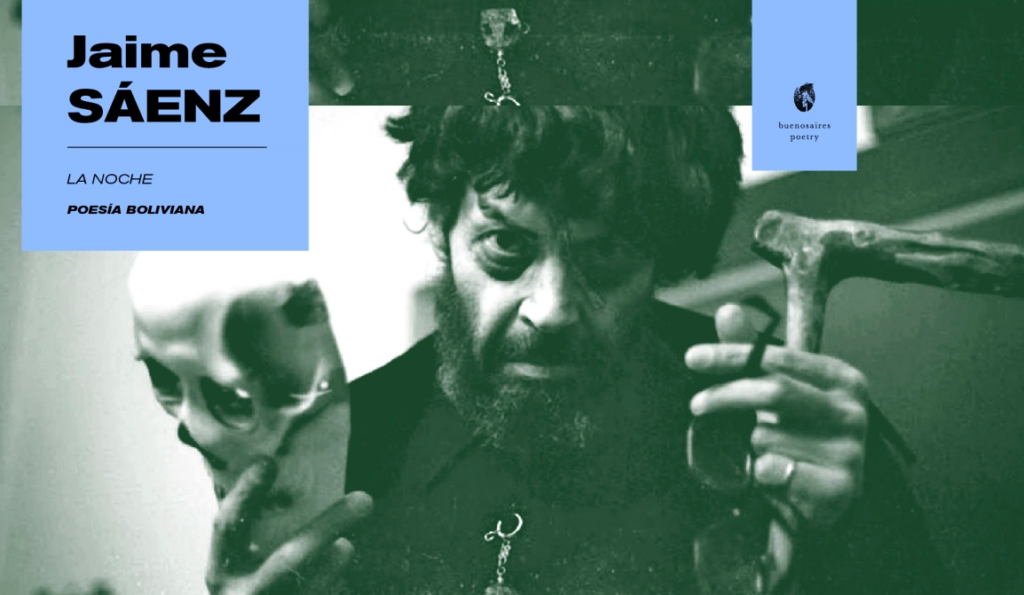The Night
Jaime Saenz
Translated and introduced by Forrest Gander and Kent JohnsonPrinceton
University Press, $19.95 (cloth)
Published two years before the Bolivian poet Jaime Saenz’s death in 1984, The Night redefines what it means to be illuminated by anatomizing the experience of being enveloped in darkness. In this visionary long poem, night cocoons the body, drugs it with alcohol, and “[sinks] itself into the shaft of the spine.” Drunks form its priesthood and come closest to understanding its secret; for them, “alcohol is light,” the most effective tool for penetrating the night’s “profundities.” Knowledge here is bodily, attained existentially: “It’s time to comprehend the incomprehensible; no one can explain it for you. / You have to apprehend your body. And your body, in turn, has to apprehend.” Saenz is not a straight-up existentialist, though; his writing is not terribly absurd, nor is it bleak. It is rich, sensuously detailed, intimately voiced, and its sense of humor is tempered with wisdom: “How should you learn to die? / —it must be a bitterly hard thing / …/ learning to die is learning to live.” Thoughts of holding on and letting go lead Saenz to catalog his favorite possessions, making no secret that he is also referring to himself and his friends: “Many things disappear or break, while others meet odd fates, as if they were human,” he writes. “They’re all sad pieces of junk, rickety wrecks, long out of style / —and, precisely for that reason, they are indivisible from life, and it’s murder to let them go.” Saenz’s sweetness comes through strongly in these lines, eloquently captured by Gander and Johnson. If the translation’s weakness lies in its occasionally pedantic diction and a penchant for the odd cognate (“cloacae” for sewers, “deracinating” for destroying, etc.), its greatest strength is its ability to represent in English the Spanish original’s complex tone. Exquisitely produced, this edition advances Saenz’s ultimate mission for The Night: to reveal a vision of the body connected with its soul, “inhabiting” it, passing through a life full of danger, fear, and humiliation, constructing a holistic view of existence, a unified conception of life and death.








